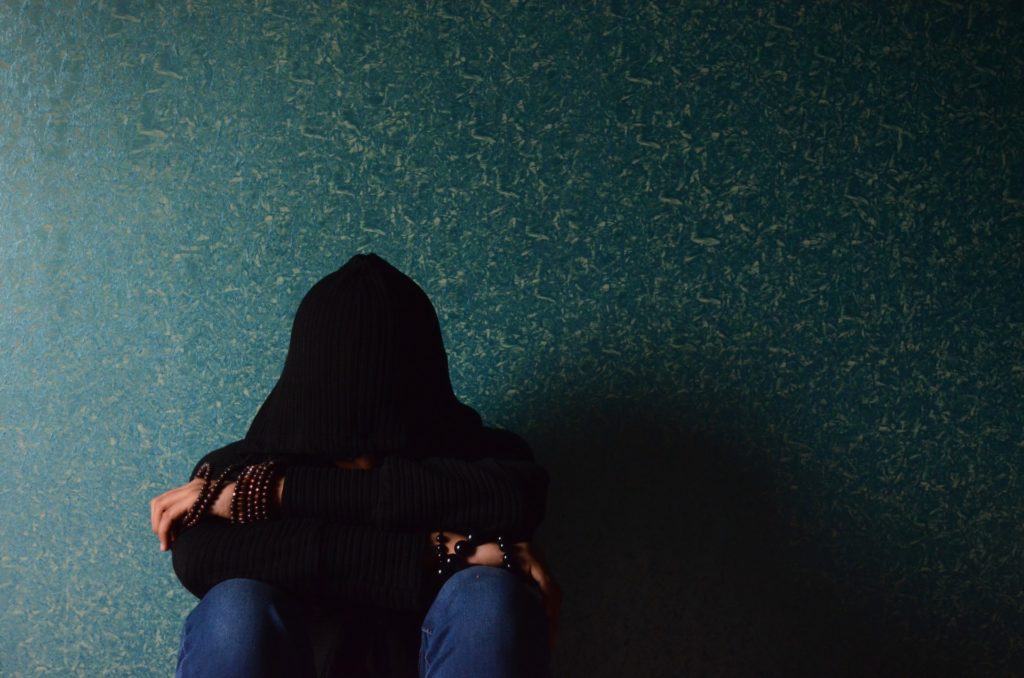
Most people get anxiety or become self-conscious from time to time, like when they have to do an interview or give a speech. But social anxiety is more than just occasional nerves or shyness. A person with social anxiety has an unshakable fear that they will somehow end up embarrassing themselves by doing or saying the wrong thing. The fear is so severe that it can cause a person to go to great lengths to avoid social situations altogether. Regardless of how hopeless that person may feel, overcoming social anxiety is possible.
Social Anxiety at a Glance
Social anxiety involves an intense fear of social situations, especially if a situation involves unfamiliar territory and new people. This type of situation can be so frightening that a person with social anxiety can become anxious just thinking about it.
Social anxiety is basically the fear of being scrutinized, embarrassed, or judged. A person will be afraid that they don’t measure up to other people or that they’ll do or say something that will draw attention to themselves.
If you suffer from social anxiety, you’re not alone. It’s actually very common.
Some people will experience some level of anxiety in most types of social situations, while others will immediately experience an increase in anxiety based on specific situations including clubs or parties. Or their anxiety can be ongoing, meaning they experience panic attacks at night, or during their day, without any known trigger. This level of anxiety can be very debilitating.
Common social anxiety triggers can include:
- Public speaking
- Meeting new people
- Performing on stage
- Making small talk with new people
- Being criticized
- Being watched while doing an activity
- Being the center of attention
- Going on a first date
- Being called on in class
But just because a person gets nervous in certain types of social situations doesn’t mean they have a social phobia or social anxiety. There are many people that occasionally feel self-conscious, yet it doesn’t have a daily impact on their lives. With social anxiety, this disorder can affect a person’s day to day life.
Some common signs of social anxiety include the following:
- Excessive anxiety in most types of social situations
- The inability to hang out with people without drinking alcohol
- An intense worry for weeks or months before a scheduled upcoming social event
- Extreme fear of being watched
- Fear that you’ll humiliate yourself
- Shortness of breath
- Intense sweating
- Blushing
- Nausea
- Racing heart
- Hot flashes
- Lightheadedness
Tips on How to Overcome Social Anxiety

While it probably feels like there’s nothing you can do to treat your social anxiety, in reality, there are many things you can do that will help to improve your quality of life and get you back out into the world.
Social anxiety causes negative beliefs and thoughts that can contribute to anxiety. Challenging these negative thoughts and feelings can be an effective way to get over your anxiety.
First, identify the negative thoughts that reinforce your fear of being in social situations.
Next, challenge and analyze these thoughts. It may be scary to confront these thoughts and think them through, but by understanding the reasons behind why you feel intense anxiety in the first place you can reason with yourself and shoot down any negative thoughts in the future, the minute they pop into your mind.
Focusing on Your Surroundings
When you’re in a social situation you might think everyone is staring at you, whispering about you, and laughing at you. But this excessive type of self-focus will only serve to make you more aware of how terrified you feel in your situation and can even trigger a panic attack.
Instead of worrying about what people are thinking or what mistake you’re bound to make next, try switching from internal focus to external focus. The more you focus on what’s happening around you, the less you’ll focus on your anxiety. Try focusing your attention on other people, just don’t concentrate on what they probably think of you.
Keep in mind, your anxiety isn’t as visible as you think it is. Even if a person notices that you’re nervous, it doesn’t mean that they’ll think badly of you.
Try focusing on the present moment instead of worrying about what you’re going to do or say and how you look in the eyes of other people.
Controlling Your Breathing
When a person becomes anxious, there are many changes that occur in the body. One of these changes is rapid breathing. Rapid breathing or hyperventilation can throw off the carbon dioxide and oxygen in the body, which can lead to even more symptoms including the feeling of suffocation, muscle tension, and dizziness.
Learning how to slow down your breathing will reduce the physical symptoms of anxiety and allow you to feel more in control.
Practice deep breathing techniques at home that you can try the next time you feel a panic attack coming on. You can also read our review of the 60 Second Panic Solution, just click here.
Avoiding social situations can make your social anxiety even worse. The best thing to do in order to overcome your anxiety is face it. Avoiding social situations may make you feel better for a short period of time, but in the long run, you can easily become overwhelmed in any type of social situation. Pushing yourself to attend at least one social function a week is a great way to put yourself on the right path to learning how to cope.
The key to using this technique is to start small and gradually work your way up to more challenging types of social situations. This will help you to slowly build your confidence and coping skills.
Remember, overcoming your social anxiety will take practice and time. This is a gradual process and one that shouldn’t be rushed. Using the skills we’ve covered here, you can enjoy having a social life again and learn how to feel comfortable in any type of social situation.